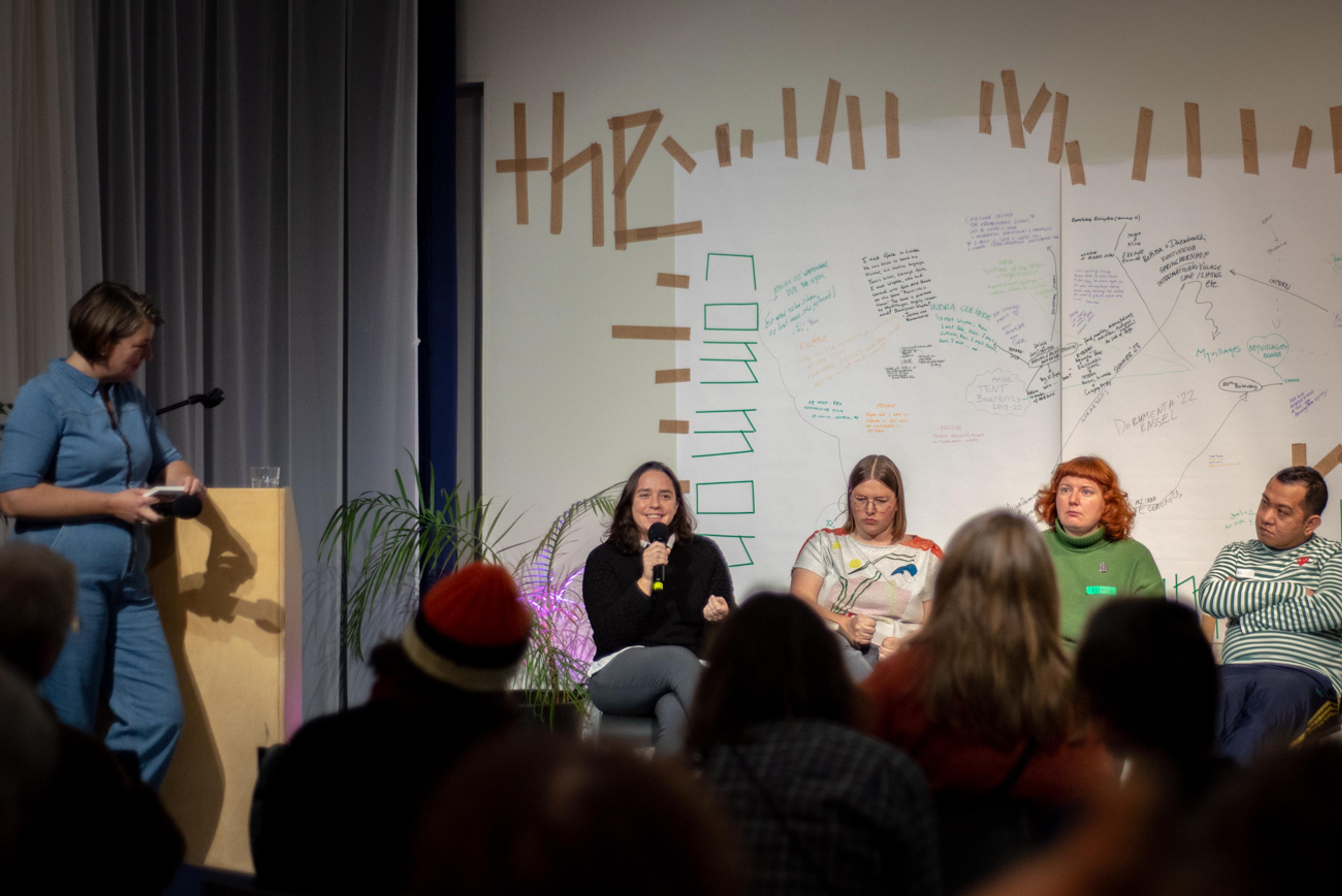BoerenzijNL
Boerenzij (the rural side) is a former nickname for Rotterdam-South. In the 20th century the term was used disparagingly to refer to the rural migrant workers and their families that settled in neighborhoods near the Rotterdam harbours on the south bank of the Maas.
The residents of this new district were rural labour migrants, initially from North Brabant, Zeeland and Southern Europe, and later from Morocco, Turkey, Suriname and the Antilles, and more recently - Eastern Europe. These newcomers were implicitly expected to leave their rural culture and knowledge behind, just as local farmers were expected to relinquish fields to make way for the city.
Rotterdam-South has been the organisational home of Myvillages since 2003. It is also the home of Wapke Feenstra, her studio and the archive of Myvillages.
In 2003 we officially launched Myvillages (then called myvillages.org) as a shared cultural space for opening up the rural as a working place for artists. Fed up with the ubiquity of urban cultural hegemony, we self-organised ways of thinking together, working within and publishing about the rural as a particularity without any urge to define it.
| Region | South Holland |
|---|---|
| Local partners |
|
| Population | 240 165 |
| Common fruit, vegetables, animals | Harbour, cats and rats, penthouses |
| Tradition | Wereldhavendagen, NN North Sea Jazz Festival |
| Scent | Fresh cold sea wind, Quaker cruesli granola |
| Distances from Boerenzij | Distances |
The second day of the Myvillages Anniversary Celebration was spent in a smaller group, and was directly connected to the Rural School of governance and economics, asking Why? How? and Who with? towards imagining and speculating futures of Myvillages.
Myvillages is as a legally and culturally recognised organisation, a place for work and artistic livelihoods. It has cultural capital, a big network of partners and collaborators and a solid track record of raising funds.
In 2003 we started with opening up a field - a field that we stretched and used over the years. We cultured the soil, planted seeds, enjoyed many harvests, we added small structures and routes to other fields. We have places to stay, a barn, a library, storage and archive, tools and a large social space. We could call it a farm, and with every farm the question arises: who wants to use and look after it in the future?
"As if it was a farm" is also a text, first written by Kathrin and Wapke in October 2023, and revised in January 2024, with input from Inez Dekker and Indra Gleizde, reflecting on questions and suggestions discussed throughout the day.
Friday 17th November - a day of Rural Rotterdam - celebrating in the in the manner of our work: close to the ground, together with others, curious, critical, tangible and of course good food and music.
Images from the walk and the gathering at TENT:
18.00 – 20.00h
De-urbanising the Museum
Panel&Discussion at TENT
Is art urban? With this fundamental question Myvillages started to self-organise in 2003, to address the ubiquity of the urban in contemporary art, through our collective practice and direct action. By the mid 90ies “globalisation” and “urbanisation” had become dominant cultural and economic terms, and Myvillages recognised an astonishing lack of interest to work with the rural. The Myvillages initiative was an emancipatory step to undermine preconceptions of the rural, looking at forms of cultural production, pre-conceptions and power relationships.
Franciska Zólyom, director of Galerie für Zeitgenössische Kunst Leipzig and Charles Esche, director of the Van Abbemeuseum in Eindhoven, are starting the session with reflections on the rural relationships their institutions have and hold. Followed by a panel with Jane Scarth, curator public programme at Whitechapel Gallery London, Renan Laru-an, artistic director at SAVVY Contemporary Berlin, Alina Dzeravianka, cultural manager and activist based in Brest, Belarus and Aria Spinelli, curator/researcher at ASCA, Universiteit van Amsterdam.
The session is moderated by Meta Knol.
Finishing with food and a party at on the Boerenzij, with DJ Reza Afisina (ruangrupa).
| Region | South Holland |
|---|---|
| Local partners |
|
| Population | 240 165 |
| Common fruit, vegetables, animals | Harbour, cats and rats, penthouses |
| Tradition | Wereldhavendagen, NN North Sea Jazz Festival |
| Scent | Fresh cold sea wind, Quaker cruesli granola |
| Distances from Boerenzij | Distances |
